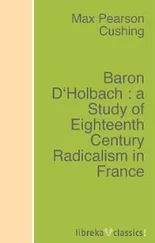John Ashton - Eighteenth Century Waifs
Здесь есть возможность читать онлайн «John Ashton - Eighteenth Century Waifs» — ознакомительный отрывок электронной книги совершенно бесплатно, а после прочтения отрывка купить полную версию. В некоторых случаях можно слушать аудио, скачать через торрент в формате fb2 и присутствует краткое содержание. Жанр: foreign_antique, foreign_prose, на английском языке. Описание произведения, (предисловие) а так же отзывы посетителей доступны на портале библиотеки ЛибКат.
- Название:Eighteenth Century Waifs
- Автор:
- Жанр:
- Год:неизвестен
- ISBN:нет данных
- Рейтинг книги:4 / 5. Голосов: 1
-
Избранное:Добавить в избранное
- Отзывы:
-
Ваша оценка:
- 80
- 1
- 2
- 3
- 4
- 5
Eighteenth Century Waifs: краткое содержание, описание и аннотация
Предлагаем к чтению аннотацию, описание, краткое содержание или предисловие (зависит от того, что написал сам автор книги «Eighteenth Century Waifs»). Если вы не нашли необходимую информацию о книге — напишите в комментариях, мы постараемся отыскать её.
Eighteenth Century Waifs — читать онлайн ознакомительный отрывок
Ниже представлен текст книги, разбитый по страницам. Система сохранения места последней прочитанной страницы, позволяет с удобством читать онлайн бесплатно книгу «Eighteenth Century Waifs», без необходимости каждый раз заново искать на чём Вы остановились. Поставьте закладку, и сможете в любой момент перейти на страницу, на которой закончили чтение.
Интервал:
Закладка:
When about thirteen or fourteen, he joined his father at Newby, till the death of Sir Edward Blackett, and, his father having several books on mathematics, and the boy being of a studious turn of mind, he mastered their contents, and laid the foundation of his future scholarship. When about sixteen years of age, he went to London to be in the counting-house of Mr. Christopher Blackett as bookkeeper; but he had not been there more than a year or two when he caught the small-pox, and, on his recovery, went home into Yorkshire. His native air soon restored him to health, and he studied hard at poetry, history, and antiquities. He thus fitted himself for keeping a school, which he opened in Netherdale, and continued there for many years teaching and studying. There he married, as he says, ‘unfortunately enough for me, for the misconduct of the wife which that place afforded me has procured for me this place, this prosecution, this infamy, and this sentence.’
During these years he read the Latin and Greek authors, and obtained such a name for scholarship that he was invited to Knaresborough to keep a school there. He removed thither in the year 1734, and continued there until about six weeks after the murder of Daniel Clark. In the meantime he had mastered Hebrew, and when he went to London he got a situation to teach Latin, and writing, at a school in Piccadilly, kept by a Monsieur Painblanc, who not only gave him a salary, but taught him French. There he remained over two years, then went to Hays as a writing-master, after which he wandered from situation to situation, at one time earning his living by copying for a law-stationer. At last, somehow, he found himself an usher at the Free School at Lynn, where he lived until he was arrested for the murder of Daniel Clark.
This man was a shoemaker at Knaresborough, and was an intimate visitor at Aram’s house – too intimate, indeed, Aram thought, with his wife, hence the reference to his wife previously quoted. He was a man of bad character, and was more than suspected of having, in company of another vagabond named Houseman, murdered a Jew boy, who travelled the country for one Levi as a pedlar, carrying a box containing watches and jewellery. The poor lad was decoyed to a place called Thistle Hill, where he was robbed, murdered, and buried. This was about the year 1744, and his bones were not found until 1758.
Richard Houseman, who was born the same year as Aram, was a near neighbour of the latter’s – in fact, he lived next door, and his occupation was that of a heckler of flax, when he gave out to the women of the village to spin for him. But, according to his own statement, he was a most unscrupulous black-guard.
Another intimate of Aram’s was a publican, named Terry, but he only played a subsidiary part in the drama, and nothing was ever brought home to him.
In January, 1745, Clark married a woman with a small fortune of about two hundred pounds, and, immediately afterwards, this little nest of rogues contrived and carried out the following swindle. Clark, as he was known to have married a woman of some little money, was to obtain goods of any description from whomsoever would part with them on credit; these goods were to be deposited with, and hidden by, Aram and Houseman, and, after plundering all that was possible, Clark was to decamp, and leave his young wife to do the best she could. This was the scheme in which the noble and refined Eugene Aram of Lord Lytton was to, and did, bear his full part.
Velvet from one man, leather from another, whips from a third, table and bed linen from a fourth, money lent by a fifth – all was fish that came to their net; and, when obtained, they were hidden on the premises either of Aram or Houseman, or else in a place called St. Robert’s Cave, which was situated in a field adjoining the Nid, a river near Knaresborough. When this source was thoroughly exploited, a new scheme was hit on by this ‘long firm.’ Clark should pretend to be about to give a great wedding-feast, and he went about gaily, borrowing silver tankards, salvers, salts, spoons, &c., from whoever would lend them. Indeed, so multifarious were his perquisitions, that, according to one contemporary account, he got, among other goods, the following: ‘three silver tankards, four silver pints, one silver milk-pot, one ring set with an emerald, and two brilliant diamonds, another with three rose diamonds, a third with an amethyst in the shape of a heart, and six plain rings, eight watches, two snuff-boxes, Chambers’ Dictionary, two vols. folio, Pope’s “Homer,” six vols., bound.’
Having got all that could be got, it was now high time that Clark should disappear. He was last seen on the early morning of the 8th February, 1745, and from that time until August 1, 1758, nothing was heard of him. He was supposed to have gone away with all his booty – and yet not all of it, for suspicion was aroused that both Aram and Houseman, from their intimacy with Clark, were accomplices in his frauds. And so it clearly proved, for, on Aram’s house being searched, several articles were found the produce of their joint roguery, and in his garden were found buried, cambric and other goods, wrapped in coarse canvas. Still, neither he, nor Houseman, nor Terry were prosecuted, 24but Aram thought it prudent to change his residence; so one fine day he left his wife and family, and wandered forth. We have seen the roving life he led, restless, and always changing his abode; yet, during those thirteen years of shifting exile, it must be said, to his credit, that no breath of scandal attached to him; he was studious, somewhat morose, yet he was so liked by the boys at the grammar-school at Lynn, that, when he was taken thence by the officers of justice, they cried at losing him.
Whilst at Lynn, he was recognised in June, 1758, by a horse-dealer, and this recognition eventually led to his apprehension; for, during that summer, a labourer, digging for stone or gravel at a place called Thistle Hill, near Knaresborough, found, at the depth of two feet, a skeleton, which appeared to have been buried doubled up. The remembrance of Clark’s disappearance was at once awakened, and the body was set down as being his.
A country town has a keen recollection of anything which has occurred disturbing its equal pace, and the connection of Aram and Houseman with Clark was duly remembered. Aram was away, but Houseman still lived among them, and he was ordered by the coroner to attend the inquest. The principal witness was Anna Aram, Eugene’s wife, and she had frequently, since her husband’s departure, dropped hints of her suspicion that Clark had been murdered. Her evidence is clear. She said that Daniel Clark was an intimate acquaintance of her husband’s, and that they had frequent transactions together before the 8th of February, 1744-5, and that Richard Houseman was often with them; particularly that, on the 7th of February, 1744-5, about six o’clock in the evening, Aram came home when she was washing in the kitchen, upon which he directed her to put out the fire, and make one above stairs; she accordingly did so. About two o’clock in the morning of the 8th of February, Aram, Clark, and Houseman came to Aram’s house, and went upstairs to the room where she was. They stayed about an hour. Her husband asked her for a handkerchief for Dickey (meaning Richard Houseman) to tie about his head; she accordingly lent him one. Then Clark said, ‘It will soon be morning, and we must get off.’ After which Aram, Houseman, and Clark all went out together; that, upon Clark’s going out, she observed him take a sack or wallet upon his back, which he carried along with him; whither they went she could not tell. That about five o’clock the same morning her husband and Houseman returned, but Clark did not come with them. Her husband came upstairs, and desired to have a candle that he might make a fire below. To which she objected, and said, ‘There was no occasion for two fires, as there was a good one in the room above, where she then was.’ To which Aram, her husband, answered, ‘Dickey’ (meaning Richard Houseman) ‘was below, and did not choose to come upstairs.’ Upon which she asked (Clark not returning with them), ‘What had they done with Daniel?’ To this her husband gave her no answer, but desired her to go to bed, which she refused to do, and told him, ‘They had been doing something bad.’ Then Aram went down with the candle.
Читать дальшеИнтервал:
Закладка:
Похожие книги на «Eighteenth Century Waifs»
Представляем Вашему вниманию похожие книги на «Eighteenth Century Waifs» списком для выбора. Мы отобрали схожую по названию и смыслу литературу в надежде предоставить читателям больше вариантов отыскать новые, интересные, ещё непрочитанные произведения.
Обсуждение, отзывы о книге «Eighteenth Century Waifs» и просто собственные мнения читателей. Оставьте ваши комментарии, напишите, что Вы думаете о произведении, его смысле или главных героях. Укажите что конкретно понравилось, а что нет, и почему Вы так считаете.












